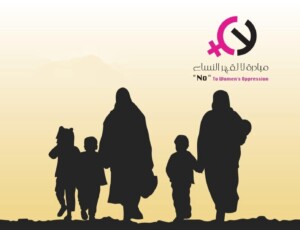Sudanese participate in international day against gender-related violence
November 25 marked the annual call for the Elimination of Violence Against Women. In a statement, the United Nations expressed a need for “solidarity with survivors and survivor advocates and women’s human rights defenders who are working to prevent and end violence against women and girls” and intensified efforts to stop the “preventable global scourge with a detrimental impact on women’s and girls’ lives and health.”
 Citizens partake in celebration for International Day for the Elimination of Violence Against Women (UNAMID)
Citizens partake in celebration for International Day for the Elimination of Violence Against Women (UNAMID)
November 25 marked the annual call for the Elimination of Violence Against Women. In a statement, the United Nations expressed a need for “solidarity with survivors and survivor advocates and women’s human rights defenders who are working to prevent and end violence against women and girls” and intensified efforts to stop the “preventable global scourge with a detrimental impact on women’s and girls’ lives and health.”
International Criminal Court (ICC) Prosecutor Fatou Bensouda echoed this call, stating that “among the chilling range of violence committed against [women] are sexual and gender-based crimes in the context of war and conflict. Girls taken from their homes, from their schools, raped, used as sex slaves, forced to kill and die, forced to live a life of misery and despair under the imminent shadow and grip of violence. Sexual and gender-based crimes, beyond their significant and irreversible harm to individual lives, can also have devastating impact on communities and affect entire generations.”
In his message, UN Secretary-General, Antonio Guterres, stated that “violence against women and girls is a global pandemic.”
The facts
More than a third of women worldwide have experienced either physical or sexual violence at some point in their lives.
In Sudan, a human rights organisation reported on Sunday that there has been an increase in sexual and physical violence against women and children in the country, as well as endemic female genital mutilation (FGM).
Speaking at the launch of the 16-day Women’s Initiative and Building Trust campaign to combat violence against women in Khartoum on Thursday evening, Nahid Jabrallah, the director of Sima Centre for the Protection of Women and Children, said that the rate of FGM in Sudan is 65 per cent while the rate of marriage for underage girls is 37 per cent.
Furthermore, new data released by the United Nations Office on Drugs and Crime suggests that “the home is the most likely place for a woman to be killed,” with an average of 137 women across the world are killed by a partner or family member every day. Women in Africa are most at risk, with 3.1 women killed by a partner or family member per 100,000 of the population compared to 1.6 in the Americas, 0.9 in Asia, and 0.7 in Europe.
A BBC investigation into reports of women who died in a gender-related killing found that there is "relative silence" about killings in the African press; they explained that the investigation was “as much about the deaths that aren't reported, as those that are… it makes you wonder: what does it take to make a woman's killing important enough to be reported?”
16 days, 16 ways
In El Fasher, North Darfur, citizens celebrated the International Day for the Elimination of Violence Against Women by marching through the town and celebrating the beginning of a 16-day campaign to end violence against women. The campaign spans from 25 November to 10 December and aims to educate people on how to combat gender-related violence in 16 ways, including listening to survivors, knowing and understanding the facts, sharing their own story, buying from women entrepreneurs, mobilising men and boys, and supporting each other.











 and then
and then